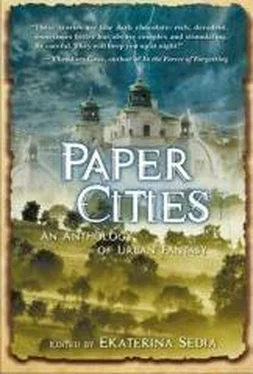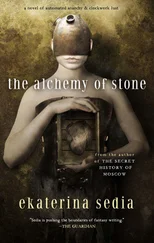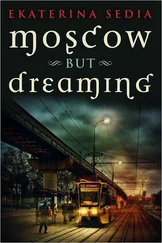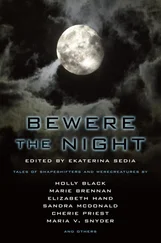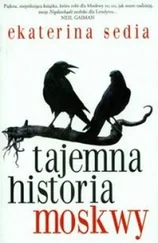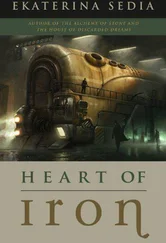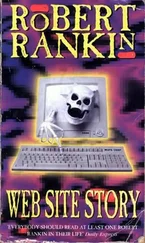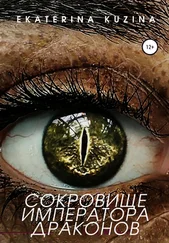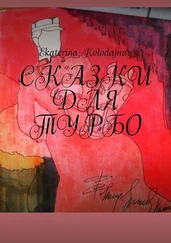Ekaterina Sedia - Stories
Здесь есть возможность читать онлайн «Ekaterina Sedia - Stories» весь текст электронной книги совершенно бесплатно (целиком полную версию без сокращений). В некоторых случаях можно слушать аудио, скачать через торрент в формате fb2 и присутствует краткое содержание. Жанр: Современная проза, на английском языке. Описание произведения, (предисловие) а так же отзывы посетителей доступны на портале библиотеки ЛибКат.
- Название:Stories
- Автор:
- Жанр:
- Год:неизвестен
- ISBN:нет данных
- Рейтинг книги:3 / 5. Голосов: 1
-
Избранное:Добавить в избранное
- Отзывы:
-
Ваша оценка:
- 60
- 1
- 2
- 3
- 4
- 5
Stories: краткое содержание, описание и аннотация
Предлагаем к чтению аннотацию, описание, краткое содержание или предисловие (зависит от того, что написал сам автор книги «Stories»). Если вы не нашли необходимую информацию о книге — напишите в комментариях, мы постараемся отыскать её.
Stories — читать онлайн бесплатно полную книгу (весь текст) целиком
Ниже представлен текст книги, разбитый по страницам. Система сохранения места последней прочитанной страницы, позволяет с удобством читать онлайн бесплатно книгу «Stories», без необходимости каждый раз заново искать на чём Вы остановились. Поставьте закладку, и сможете в любой момент перейти на страницу, на которой закончили чтение.
Интервал:
Закладка:
I learned all that as I started visiting the scenes of body removals, sometimes tipped off by Grisha, who took as much pleasure in the soul consumption as I did, and sometimes by the police, who would tell you anything if you offered to supplement their dwindling state wages. Like where the dead bodies were, and how to call a specific ambulance if one wanted. They also didn’t mind letting Grisha dawdle, and they didn’t mind us drinking great golden jugs of beer after we let them sit next to the Kabbalic symbols burned into dead businessmen’s flesh. Beer never failed to lure the dead souls.
Far as memories went, it was hit and miss. Most blended inauspiciously with my own, grey and generic, difficult to separate from each other. But there were rare splashes I lived for-the memories of a tropical island and feathery palms, the glitter of New York on a rare pre-perestroika trip abroad, an exotic hobby of orchid collecting, a fresh memory of love so consuming that even torture could not distract from the thoughts of the beloved.
Grisha and I compared memories over the phone. We prided ourselves in our acquisitions; we both grew very fond of a young Chechen who enjoyed flowers and Persian rugs and had an abiding fascination with high-breasted women. We snickered over a paunchy, middle-aged guy who believed himself a reincarnation of Gautama Buddha, the belief especially ironic considering that he had fallen in the shootout between two organizations, which quarreled over the protection money from three stores by Borovitskaya. After he was shot and unconscious, his enemies captured him and meted out their slow electric revenge.
“Sad,” Grisha observed. “He could’ve went to Valhalla had he been slain in battle.”
It’s the tidbits like that that made me lust after Grisha’s soul. But according to the mortality reports, paramedics tended to die of alcoholism often co-morbid with traffic accidents, and not of the homegrown Kabbala of the bandits.
One of our later finds, a neckless thug with the requisite burgundy jacket, brought Ipatov to the forefront of my mind. He seemed much like the rest, with a piquant difference-his father was a mid-caliber apparatchick back in the days, as Grisha, who received the entirety of his youth, told me. I got the good part: his adult life. He was the one who killed Ipatov.
He remembered Ipatov as a small man who would not pay what he owed-a peculiarity that filled the thug with perplexed bitterness. Through his memory, I saw Ipatov’s face as it was in his last moments-his white spasming lips and the shirt torn to expose his shoulders and chest. “Just take me from here,” he pleaded in a hoarse voice thick with a suppressed scream. “Just don’t let Lilya see me like this.”
The thug flicked away the butt he smoked down to the filter, and burned his iron magic into poor Ipatov, workmanlike as always. He wondered vaguely whether Lilya was Ipatov’s wife, and thought that he too used to date a girl named Lilya when he was a vocation school student.
The thug had trained to be a car mechanic, but then things changed; he fell into being a thug like many others-ex-cops, Afghan vets, who had no other employment options. I marveled at his conviction that what he did was justice: people who owed money should pay it back, and the thug was there to enforce the law in the law-enforcement vacuum. Ipatov’s agony was thug’s justice, and I enjoyed the juxtaposition of the two memories, enclosing them like pearls with the soft generic mantle of my own.
Our collecting days came to an end when they stopped selling beer by the liter. The cans just didn’t have the same appeal to the souls, and who could blame them? Could a fat man wiping his balding, apoplectic head with a handkerchief and gracing cans of Danish beer compare to the thick amber and sensual droplets of condensed moisture on the cold glass? No, my friends, he could not. The souls remained behind, fearful, trapped behind the charred alchemy of the electric irons, and Grisha and I had to content ourselves with what we had.
Now, even the electric irons are going out of fashion, Grisha tells me. We still see each other and reminisce; he often tells me about Ipatov’s childhood, of how he once threw up on the bus during the field trip and all the other kids made fun of him for weeks. I tell him of Ipatov’s crush on the Komsomol secretary, and of his loathing of thermodynamics. Of course, we have other, much more interesting lives and memories, but Ipatov gets precedence. He was our first, and that ought to count for something.
The Disemboweler
Someone was killing the cars in the neighborhood. Glenn read about it in the papers-how the owners found their disemboweled vehicles, nuts and gaskets strewn on the ground hard with frost, their sinews and muscle frozen and dead. Nobody knew what was the point of this crime except cruelty, or why the perpetrators were targeting this particular neighborhood. In his secret heart, Glenn suspected it was about him.
One morning, he found his trusty Peugeot eviscerated. Its large red heart lay among glittering metal, the only time Glenn had seen it still. The faint steam hung over the parking lot grass stiff with frost, and the spirit of the car had not yet departed-over the violated engine, a small smoky shaped coalesced.
"What happened?" Glenn whispered to the car spirit.
"Bad man," the spirit said, and faded, losing its form wisp by wisp, with nothing to hold it together. Glenn wondered briefly where spirits went when their vessels were destroyed, and kneeled among the broken parts and white metal. He poked some ball bearings with his finger and called the police on his cell. At least, the cell phone's spirit was all right and perky.
As the body was removed, Glenn watched, hurt and perplexed. He loved his car, and his throat tightened at the thought that he would never hear its heartbeat again, never see the lopsided grin of the open trunk.
He walked to work that day, to a large animated building that hissed at him when he approached-it was not used to him appearing on foot, without the car or anything. After a suspicious sniffing and creaking, the building swung its doors and admitted Glenn to its womb interior, where he worked as a bookstore manager. The bookstore huddled on the second floor, its shelves heavy with out-of-print books and other not very valuable rarities. Two fat Abyssinian cats greeted Glenn by yawning and opening one eye each.
He started a coffeemaker (the one at home was broken, its spirit having left for some greener pastures; namely, Glenn's new vacuum cleaner), and it gurgled and exhaled fragrant steam, and its spirit rattled inside, disposing of the coffee grounds and adding milk and sugar.
"Thank you," Glenn said to the coffeemaker. He settled by a bookshelf, back against a row of clothbound book spines, one cat in his lap and the other at his side, and thought of his car.
It wasn't just the murder, but the savagery of it. Why would someone spread the innards around like that, in the cold light of the glittering sun, for the world to see what should stay hidden? The sight of displaced, busted gaskets flooded his mouth with bitter saliva, the harbinger of sickness and despair, just like the sight of his own blood did. It was as if the murderer looked to shock and terrify; unless there was another meaning in scattering of the car's entrails. Maybe he was looking for something inside, and had to shake out every minute cog and spring and flywheel.
He read the paper to calm himself. The incident with his deceased Peugeot was reported already, and so was another one - last night, it seemed, the murderer, already nicknamed the Disemboweler, got his hands on, and vivisected, a microwave oven callously left at the curb by its owners. Glenn shook his head at people who just tossed out their appliances rather than finding them a new home. Small appliances belonged indoors, since their grasp on their spirits was often more tenuous than that of the larger things. Too windy a night, and one could kiss a microwave goodbye, its spirit blown away like so much smoke from overly vigorous cooking. The poor oven was cut up in much the same fashion, its tiny emitter elements scattered in the street like child's bones.
Читать дальшеИнтервал:
Закладка:
Похожие книги на «Stories»
Представляем Вашему вниманию похожие книги на «Stories» списком для выбора. Мы отобрали схожую по названию и смыслу литературу в надежде предоставить читателям больше вариантов отыскать новые, интересные, ещё непрочитанные произведения.
Обсуждение, отзывы о книге «Stories» и просто собственные мнения читателей. Оставьте ваши комментарии, напишите, что Вы думаете о произведении, его смысле или главных героях. Укажите что конкретно понравилось, а что нет, и почему Вы так считаете.
